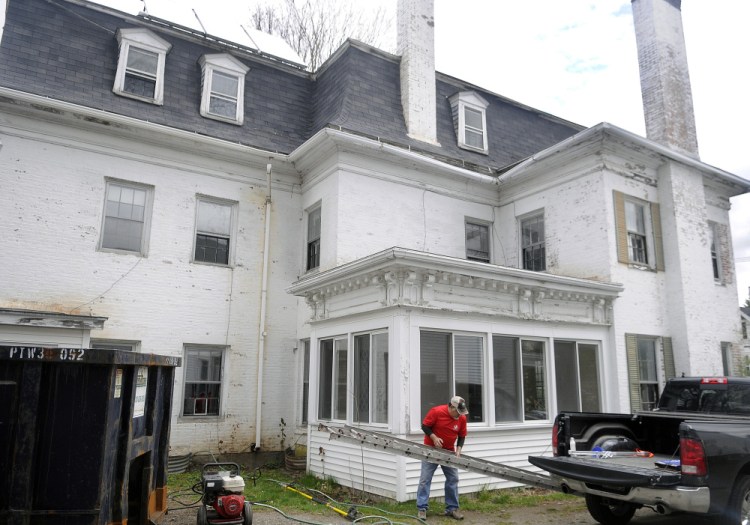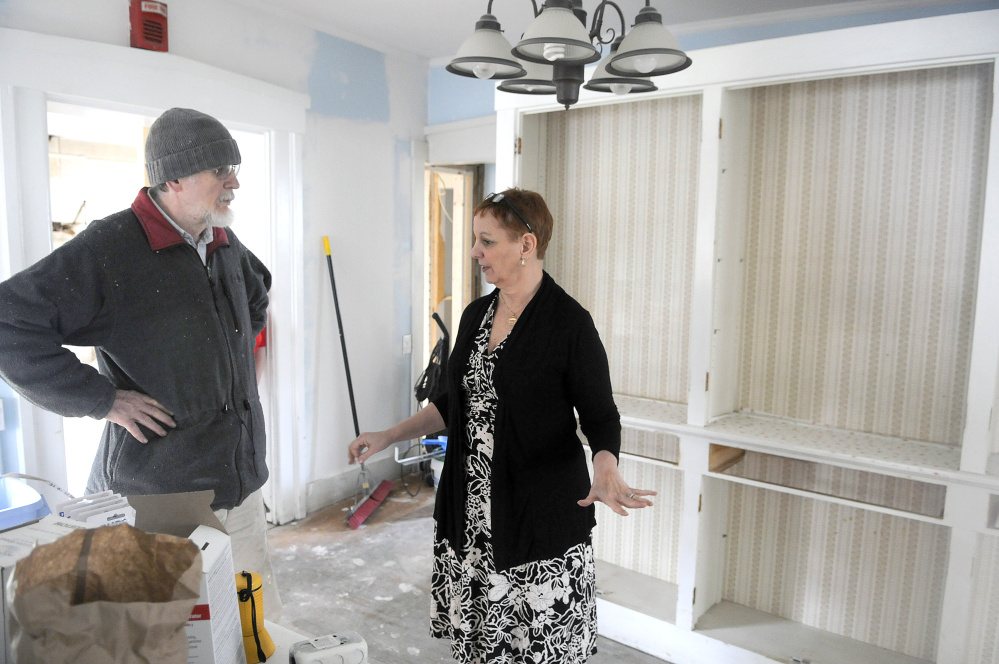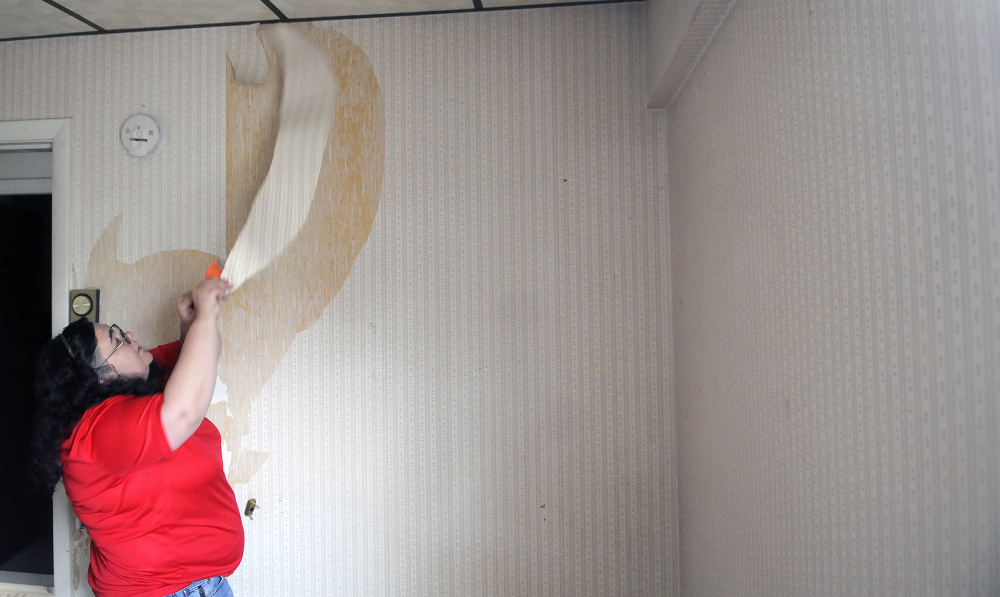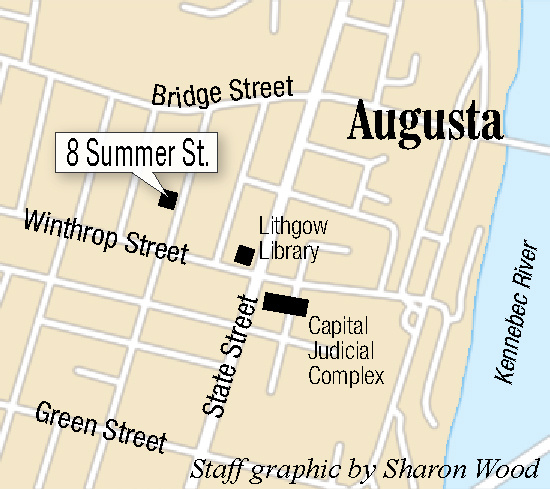AUGUSTA — A Summer Street house slated to become a shelter for homeless female veterans hit a roadblock recently when the city denied an application for a building permit to the Betsy Ann Ross House of Hope.
Project coordinator Martha Everatt St. Pierre said she is unsure of the next step.
“We’re stuck,” she said. “I can’t do anything without a building permit.”
St. Pierre’s organization acquired the house at 8 Summer St. in Augusta earlier this year. The house, which had an assessed value of $224,000 for the land and the structure, is in a zoning district that does not permit what Code Enforcement Officer Robert Overton deemed a rooming house.
Overton said because the house contains shared bathrooms and a shared kitchen, he made the decision to call it a rooming house, which is not permitted under the Land Use Ordinance for the medium density residential district where the house is located.
“When we deny a permit, it most often has to do with issues with the permit application, such as missing information,” Overton said. In this case, he said, the planned use for the house was not permitted under the current ordinance governing land use in that district.
Under the residential section of the chart listing all zoning districts and land uses, rooming houses are not marked, indicating they are not allowed in the zone. Permitted uses in that district include one- and two-family dwellings and manufactured homes. Institutional group and boarding homes are permitted in that zone, but that type of housing requires a license from the state.
“We told (Martha) that if she did that, it would be allowed,” Overton said. “But lacking that license means it’s a different type of land use.”
St. Pierre said that when she first approached the city with the idea to purchase the property to use it as homeless female veteran housing, she was told the property was grandfathered in as a group home and wouldn’t require additional permitting or licensing.
“The city came back and said that we would need licensing if we wanted to be a group home, but they allowed us to keep doing demolition,” St. Pierre said.
To get licensed as a group home, St. Pierre said, the property would have to be classified as a mental health facility, which she said has a lot of associated problems.
“The majority of these women are not mentally ill, so why give them another label if we don’t have to?” she said. “(That distinction) would limit the type of women we could house, because we could only house women with mental illness.”
St. Pierre has enlisted the services of attorney Mary Denison, of Denison & Lake, who plans to file an appeal with the city before the July 13 deadline. She hopes the appeal is heard in early August, and she expects to win.
“We are going to say this is a boarding house, and there is no definition of what a boarding house is, so how can they deny us?” St. Pierre said. A rooming house, which is not allowed, is defined as a house that takes in the general public for compensation.
Denison’s fees will be paid by a donor, St. Pierre said, but that is money that could be going to help homeless female veterans.
“How much is this whole process going to cost me?” St. Pierre said. “We also had to pay an architect that we didn’t need. That money could have gone a long way in that house.”
The group has asked for donations on its Facebook page and established a GoFundMe campaign earlier this week with a $47,500 goal. Last week, the organization received a $10,000 grant from a foundation, and St. Pierre is expecting a $5,000 grant from Wells Fargo sometime in the next few weeks. In June, Darling’s Auto donated $4,400 from the sale of vehicles in May.
St. Pierre planned for the 178-year-old home to provide accommodations for nine female veterans and their children for up to two years. The house has more than 4,000 square feet and an attic. St. Pierre said there would be a full-time social worker and a resident manager on staff.
The organization, named after St. Pierre’s mother, wants homeless female veterans to have a place to get back on their feet, learn how to budget and make healthy foods at a low-cost and save money for when they leave the program.
“They don’t want handouts,” St. Pierre said. “They want to get their life in order and get out. They have a lot of pride.”
Overton said he hadn’t received any negative feedback from the public or area residents regarding the proposed boarding house. He said the project is a great thing and his decision to classify it as a rooming house had nothing to do with the merits of the project.
People in the area probably don’t want another mental health facility nearby, St. Pierre said.
“The women aren’t drug addicts or transients,” she said. “They want to be part of the community and want to work in the community.”
Jason Pafundi — 621-5663
Twitter: @jasonpafundiKJ
Send questions/comments to the editors.







Comments are no longer available on this story